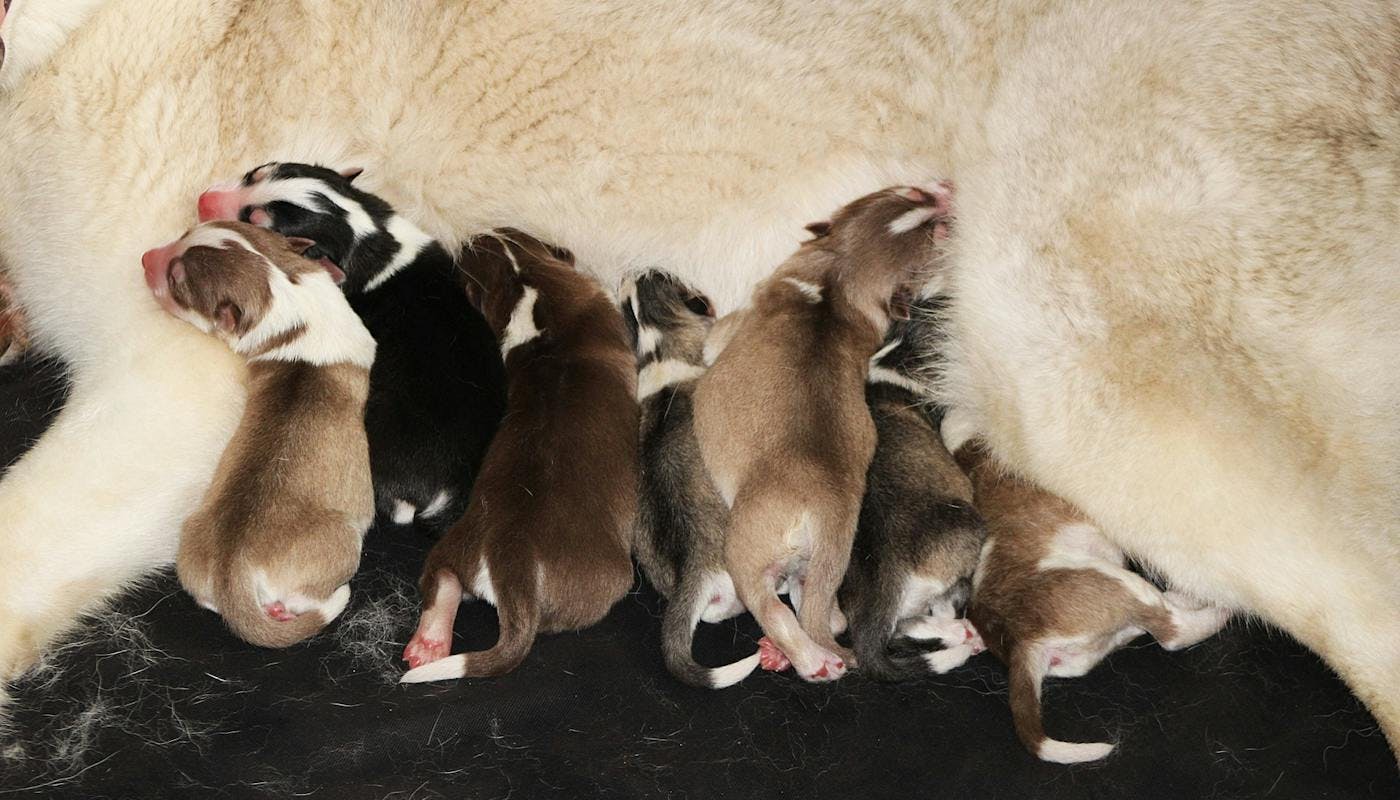Why Won’t my Pregnant Dog Eat Anything?
For pregnant dogs, occasional lack of appetite is normal. But prolonged fasting means the pups won’t get the nutrients they need. Here’s when to worry and how to help your pregnant dog.
Why Won’t my Pregnant Dog Eat?
Like humans, the early stages of canine pregnancy are often marked by a lack of appetite. It’s totally normal and could be caused by rising levels of hormones. It’s not really surprising that this significant biological change can cause nausea or disinterest in food.
As the pregnancy develops, the growing pups jostle for space with her internal organs and your dog may start to eat less. But you’ll probably find she takes small meals more often to access the nutrients that she and her brood need.
When she approaches her due date, your pregnant dog might stop eating up to 24 hours before labor. This is nature’s way of preparing her body for the turmoil of giving birth. Make sure that you bring her favorite food after she has finished whelping and ensure that she has plenty of water throughout.
When Should You Worry?
It’s normal to be attentive to your pregnant dog and if she isn’t eating, keep an eye on her daily consumption. If she doesn’t eat at all for longer than 24 hours (and she isn’t going into labor), there may be cause for concern. Call your vet for advice.
Nutritional Requirements for Pregnant Dogs
Pregnant dogs usually need more calories from the fifth week of pregnancy, and the amount increases by roughly 10% per week. That’s why it’s helpful to switch to a puppy or nursing-specific food, which contains extra calories, by week 6.
There’s usually no need to give your dog a supplement if she is eating a food that’s formulated for puppies or pregnant dogs. In fact, excess calcium can cause eclampsia. Folic acid is a helpful addition to support the growth of pups.
Your veterinarian will keep an eye on your pregnant dog’s weight and, as a general rule, it shouldn’t go far above 30% of her original body weight. Gaining too much weight can cause complications during birth so it’s equally important to monitor overeating.
How to Help your Pregnant Dog to Eat
Some early-pregnancy nausea is normal. But later in her pregnancy, your dog may also struggle with her appetite and go off foods that she’s always loved. Here are some tips for encouraging her to eat.
- Keep to her normal routine as much as possible. It helps if your dog knows when to expect food.
- Dry food is higher in nutrients than wet food, which means that your dog needs to consume a lower volume of dry food. It might be an easier option if you can find a kibble she likes.
- If she leaves half of her food, decrease the amount that you give and introduce additional meal or snack times to allow your dog to ingest smaller amounts at her own pace.
- If your pregnant dog is picky with her food, try tempting her with some plain cooked chicken or by pouring a little warm broth over her kibble. (Make your own broth/learn/dog-health/can-i-feed-my-dog-bone-broth by simmering chicken in water – store-bought broth is too high in salt for dogs.)
